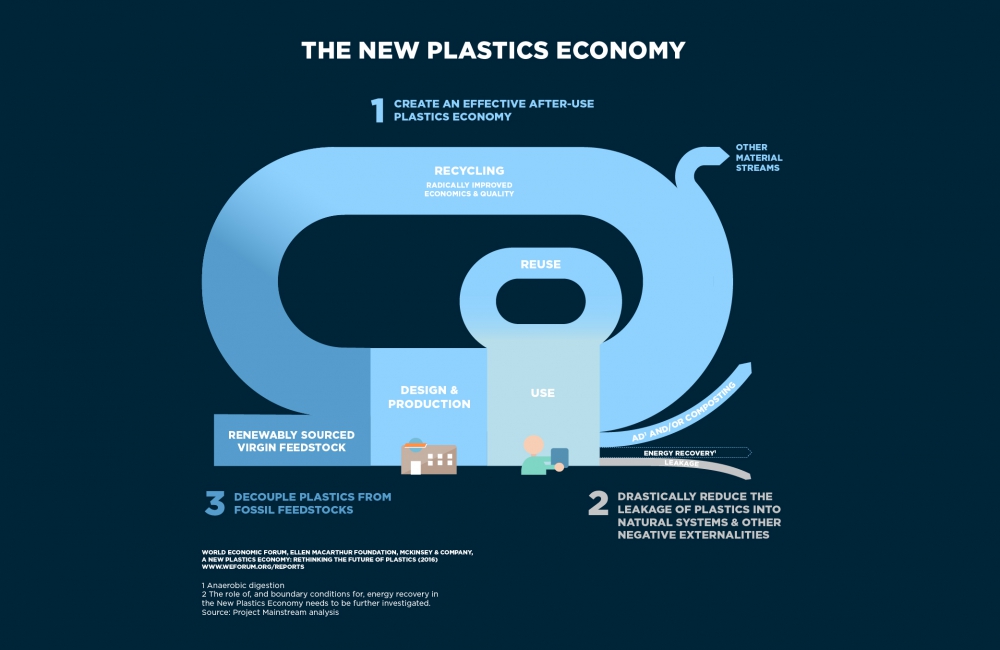Friday 29 January 2016
Davos 2016: Ellen MacArthur Foundation released the report
Rethinking the systems of production, consumption and disposal, by applying the principles of circular economy: this is the solution outlined in the report "The new plastics economy" in order to start the transition towards a more sustainable management of plastic. The report was produced by Ellen MacArthur Foundation with the contributions of more than 180 stakeholders, including Novamont, and launched at the annual meeting of the World Economic Forum held in Davos from 20 to 23 January 2016.

The Ellen MacArthur Foundation was established in 2010 with the aim of accelerating the transition to the circular economy through economic analysis, the development of "circular" business initiatives and education. The recent report offers a forward-looking vision of the "Plastics Economy", where plastics never become waste, rather they re-enter again in the economy. Its ambition is to:
- create an effective after-use plastics economy, through increasing the rate of recycling and the adoption of reusable packaging. For targeted applications, such as garbage bags for organic waste and food packaging for events and canteens, the report underlines the competitive advantage of compostable plastic packaging that can help return nutrients of the packaged content (e.g. food) to the soil. The report highlights several initiatives that have demonstrated the added value of compostable plastics, such as the successful use of MATER-BI compostable bags in the city of Milan in order to improve the quality and the quantity of biowaste collected.
- drastically reduce the leakage of plastics into natural systems and other negative externalities, improving after-use collection and infrastructure and steering innovation investment towards creating materials and formats that reduce the negative environmental impact of plastic packaging leakage. The report mentions the release by the European Commission Joint Research Center of the Environmental Technology Verification (ETV) for aerobic biodegradation of two grades of MATER-BI Third Generation under marine conditions.
- decouple plastics from fossil feedstocks, through, for example, the development of materials from renewable sources.
For more information download the report on the website www.ellenmacarthurfoundation.org

